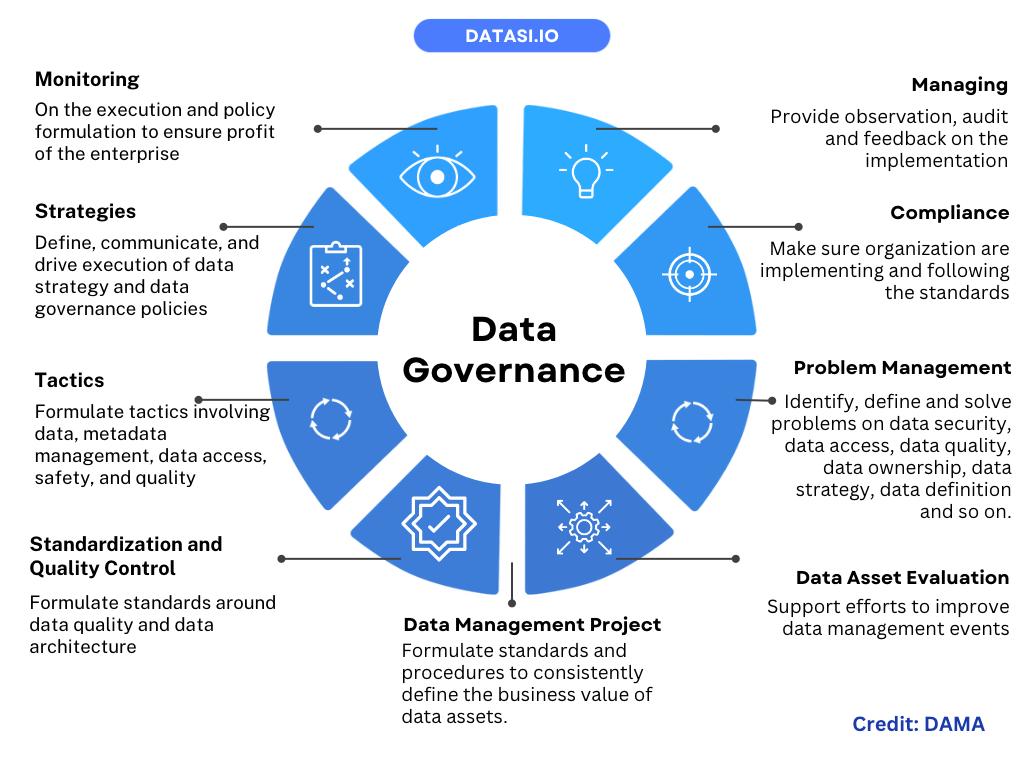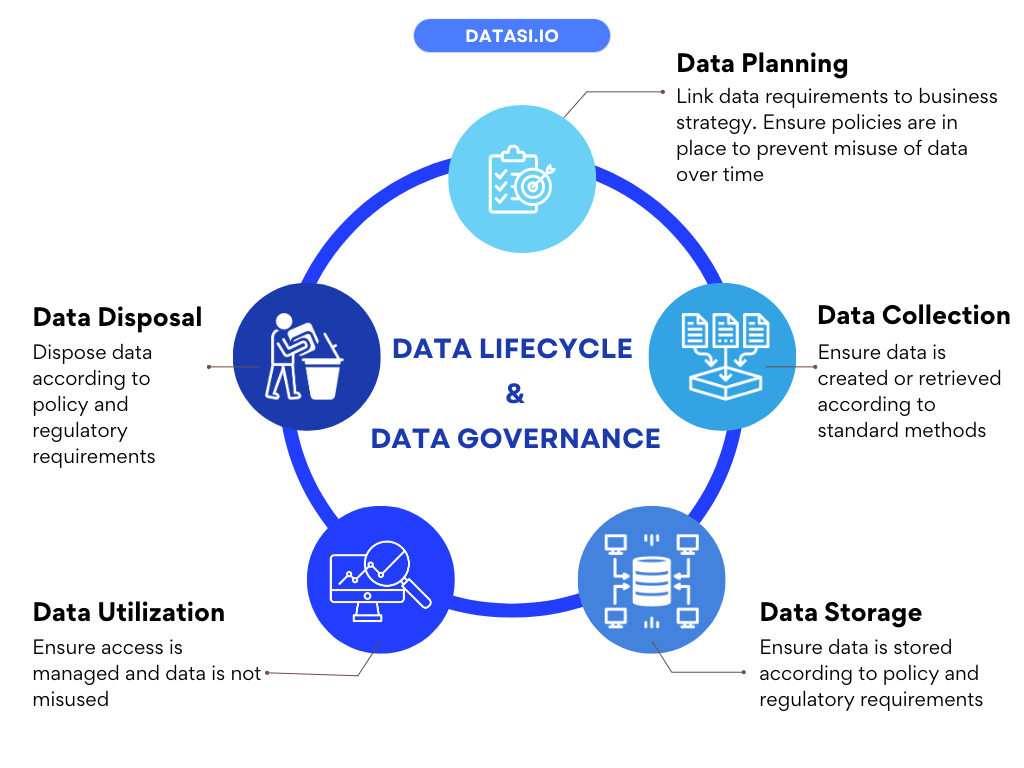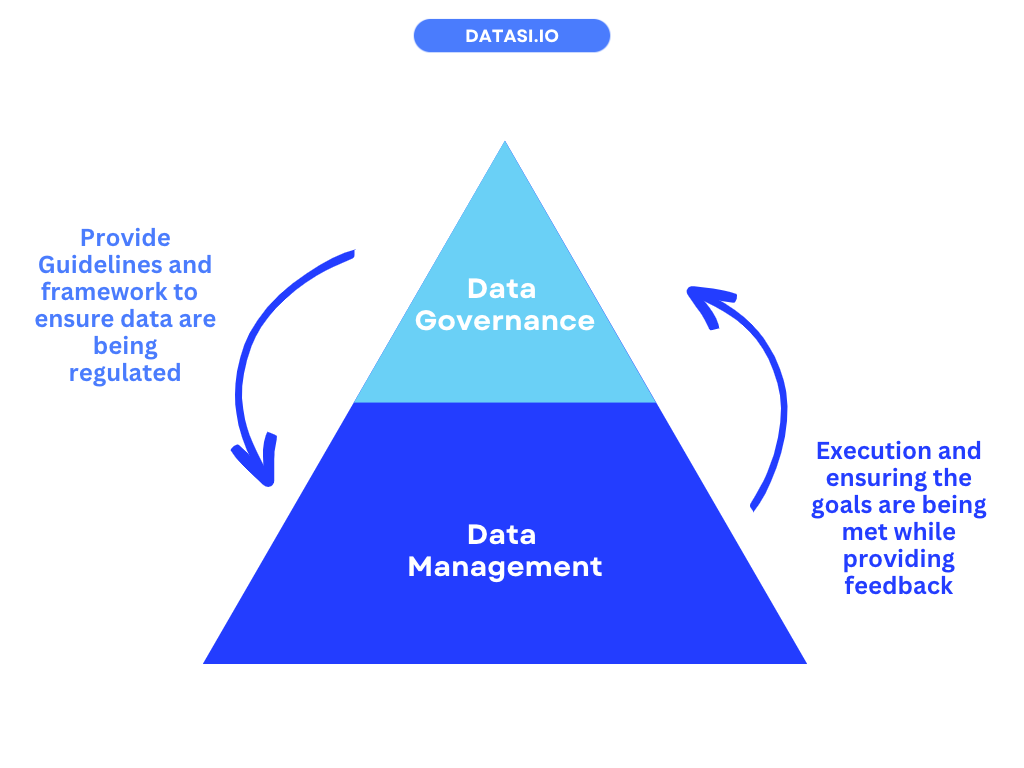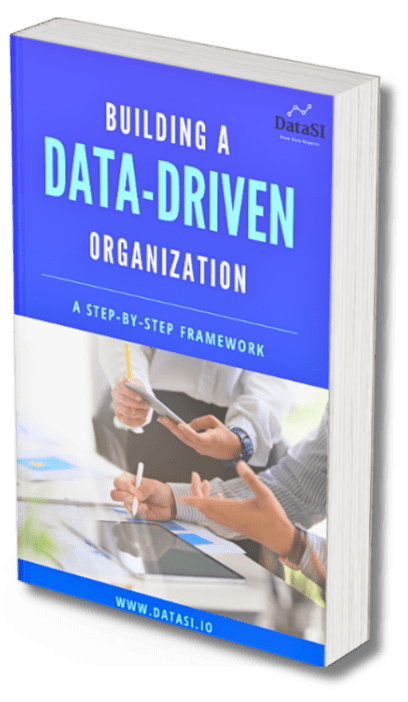In most enterprises, data is produced at different stages of operations from customer acquisition, to customer engagement to after-sales customer support.
As the volume and complexity of data increase, it’s becoming more challenging for enterprises to manage and govern data effectively.
That’s where data governance comes in.
What is Data Governance?
Data governance refers to the set of practices, policies, and procedures that an organization establishes to ensure that its data is accurate, consistent, and secure throughout the data lifecycle.
It would be chaotic if a company’s data strategy is without proper governance. Individuals have to further check the source of data and the quality of the data before using it.
By following a standardized and consistent framework and practices within a company, team members can ensure the quality of the data is maintained, have the responsibility towards data upkeeping, able to trust their company’s data for more efficient utilization.
According to the Data Management Association (DAMA), most data governance projects involve the following 9 aspects.

Data governance is not a one-time job.
It flows throughout the data’s lifecycle from data planning to data disposal.
At every step of the data lifecycle, standards and guidelines have to be followed with monitoring.

Data Governance vs. Data Management
We talked about the importance of data management in the previous post. So, what is the difference between data governance and data management?
The relationship can be explained with the following pyramid illustration.

The duty of data governance is to guide other data functions. Just like a government that involves a group of people and a system determining governing policies. Data governance acts as such roles within the company that implement frameworks for the rest to follow and execute.
It’s at the top part of the pyramid as it provides an overall perspective from a top-down angle. It takes a global view of the company’s data functions and specifies the design and planning, including which decisions to make in the data management process and division of responsibilities.
On the other hand, data management is on the execution level. It’s to follow the data strategies, plans, and framework and give feedback along the way.
Why Do You Need Data Governance?
Just like why do we need rules and regulations, without data governance, data usage could be chaotic, messy, and lacking order.
For a long period of time, data governance, data quality management, or relevant data best practices seem to be only reserved for the big companies with higher data capabilities. The time has changed.
Now as companies’ data maturity and literacy have increased, data governance is relevant to companies of all sizes and maturity levels.
Companies with good data governance practices can benefit in the following ways.
[mailerlite_form form_id=2]

Reduce Errors and Discrepanciesin Data
The first major consequence without data governance is a lack of consistency in data.
Most companies produce data in various departments and functions. Data silos occur when the collection of data or information is isolated from other departments and inaccessible to others. At the same time, people collect their own data in their own way without standard procedures and methods.
When analyst tries to gather the data for analysis, they have to go through various department or multiple databases and are overwhelmed with the number of discrepancies, ambiguity, and confusion.
With a data governance framework, a uniform standard will be set in collecting, defining, and labeling the data. Ensuring consistency and reducing errors from ambiguity. Thus, increasing the efficiency of data analysis!
Improved Data Quality
With guidelines on data collection and storage, organizations can ensure that their data is collected through the appropriate methods and following certain standards. The data collected will be more accurate, consistent, and trustworthy.
The quality of data collected is crucially important for enterprises to gain useful insights. A well-planned data governance plan can help you with that.
Better Decision-Making
Imagine a company where an analyst wants to perform data analysis but is not sure which data is usable. They have to spend hours digging through the database to find suitable data or have to guess the definition of the data. Even though the analyst might have presented a report on the finding at the end of the day, he/she is not even sure of whether the output is accurate and reliable.
If the members have no confidence in their data, it makes data strategies or business planning almost impossible.
On the other hand, when data is well-governed, decision-makers can rely on it to make informed decisions without taking the time to further verify and check on the quality of the data. All team members can also trust their data and system.
At the same time, reduce their time in manually possessing the data such as data cleaning or data restructuring, or clarifying the meaning of the data and wild guessing which data are useful.
Good data governance practices also enable data to be more readily accessible and understandable.
For instance, the naming and definition of the data are standardized through a glossary or data dictionary.
This can greatly reduce confusion and misinterpretation within the team when dealing with data, and thus, improve the efficiency of decision-making.
Increased Efficiency
Effective data governance can help organizations streamline their data-related processes, leading to improved efficiency and productivity.
For instance, in the past, members might take hours or even days to retrieve data from various databases and convert it to a suitable format for analysis. Now, with proper standards and frameworks set in place, members can retrieve the data they need simply through a data catalog.

In fact, good data governance practice is the foundation for data-driven business practices in an organization. When proper data governance is in place, all the members, practices, and technologies are aligned in the same direction and treat data like a key business asset and driver.
Companies can evolve quickly in the transition to be data-driven companies and reap the benefits from an increase in efficiency and making insightful decisions.
Enhanced Security and Reduce Risks
Good data governance practices can help organizations protect their data from unauthorized access, theft, and misuse. When data governance practices are haphazard, the company’s data security is severely at risk and prone to security breaches.
By implementing data security measures, such as access controls and encryption, organizations can reduce the risk of data breaches and protect their business’s data assets, not jeopardizing their reputation and relationship with their clients and partners.
What Should Your Business Do?
With proper data governance in place and consistent effort, enterprises can gain the maximum from their data and reduce data-related risk.
A well-planned data governance plan should ensure your data is always available, discoverable, and secure.
Setting up a proper data governance framework and practices requires expertise in multiple disciplines. In most large enterprises, management appoints their own in-house Chief Data Officer (CDO) or Chief Information Officer (CIO) for the data strategy planning.
For small and medium enterprises (SMEs) with limited budgets, you need helpful support to build a sustainable data governance and management plan for your enterprise. Strong planning is like the strong foundation for your data strategy.
At DataSI, we have helped our clients to develop sustainable and strong data governance practices by:
- Establish a data governance strategy that aligns with your business goal and supports your business strategy
- Develop and implement relevant action plans based on data management principles
- Set data quality standards
- Formulate a framework to ensure organizational compliance with data-related regulations
- Manage issues related to all aspects of data governance and data management
- Engage in an ongoing conversation with you about your company’s data governance and data management

Talk to us today
Find out how we can help your business to build a successful data strategy.


